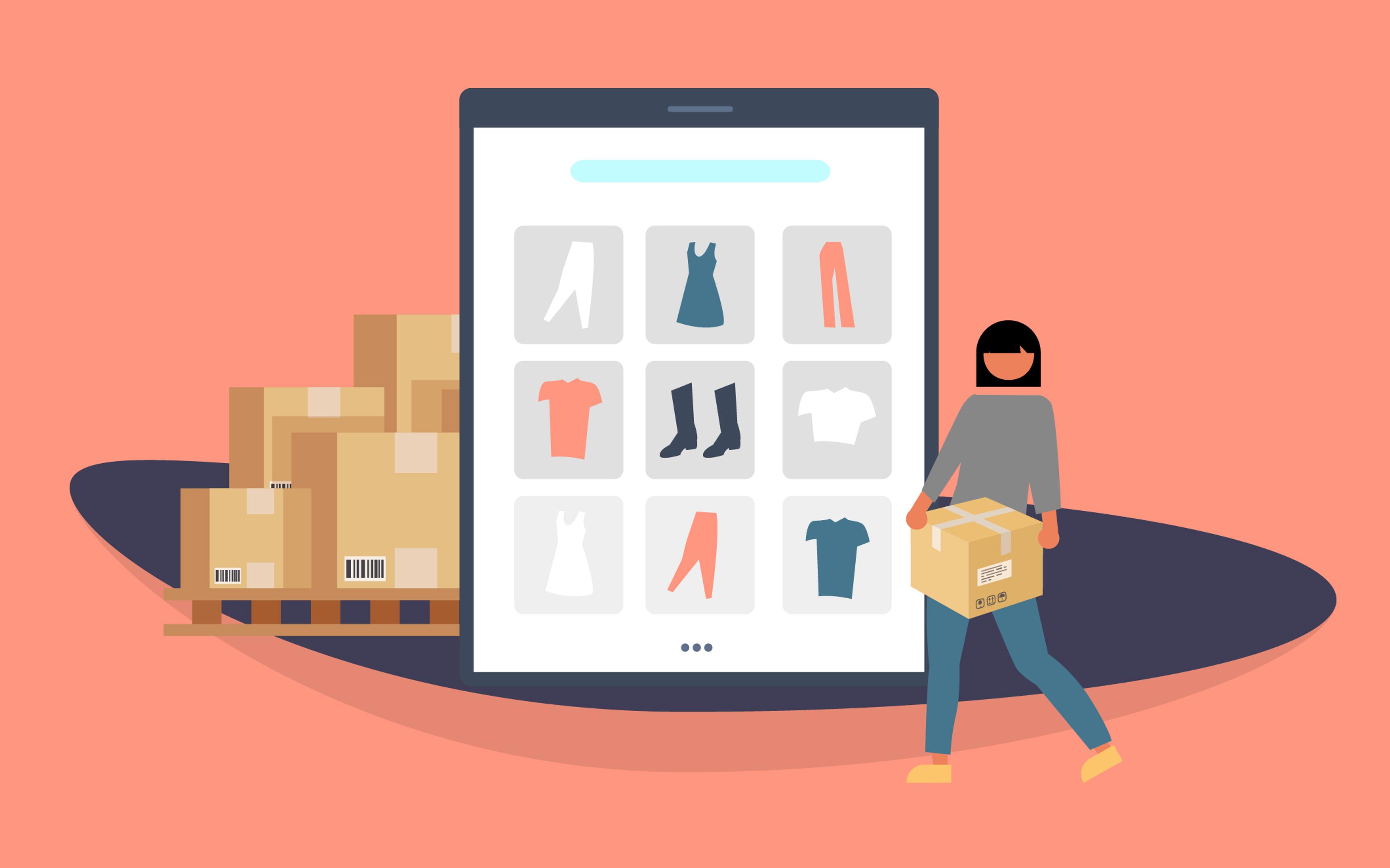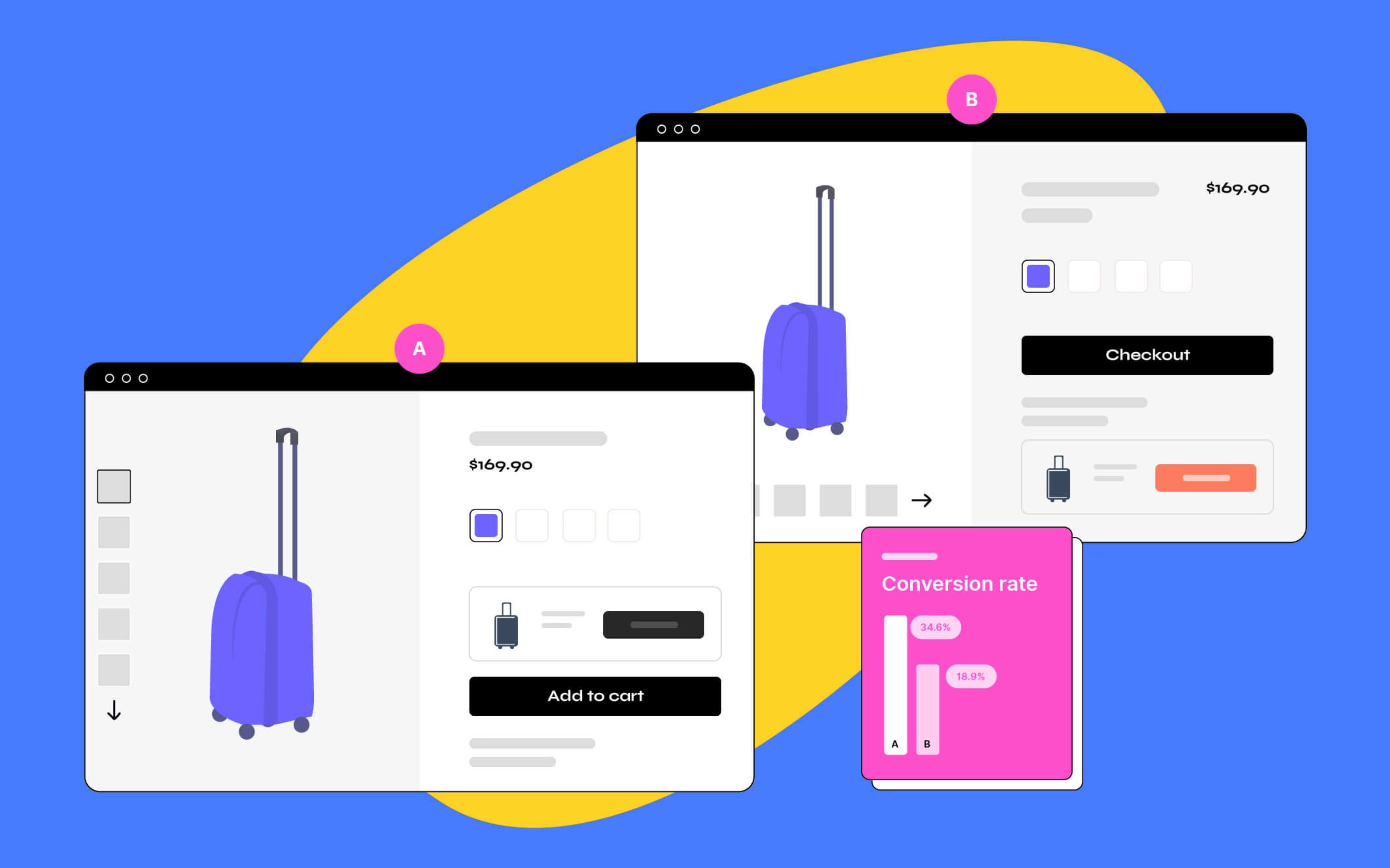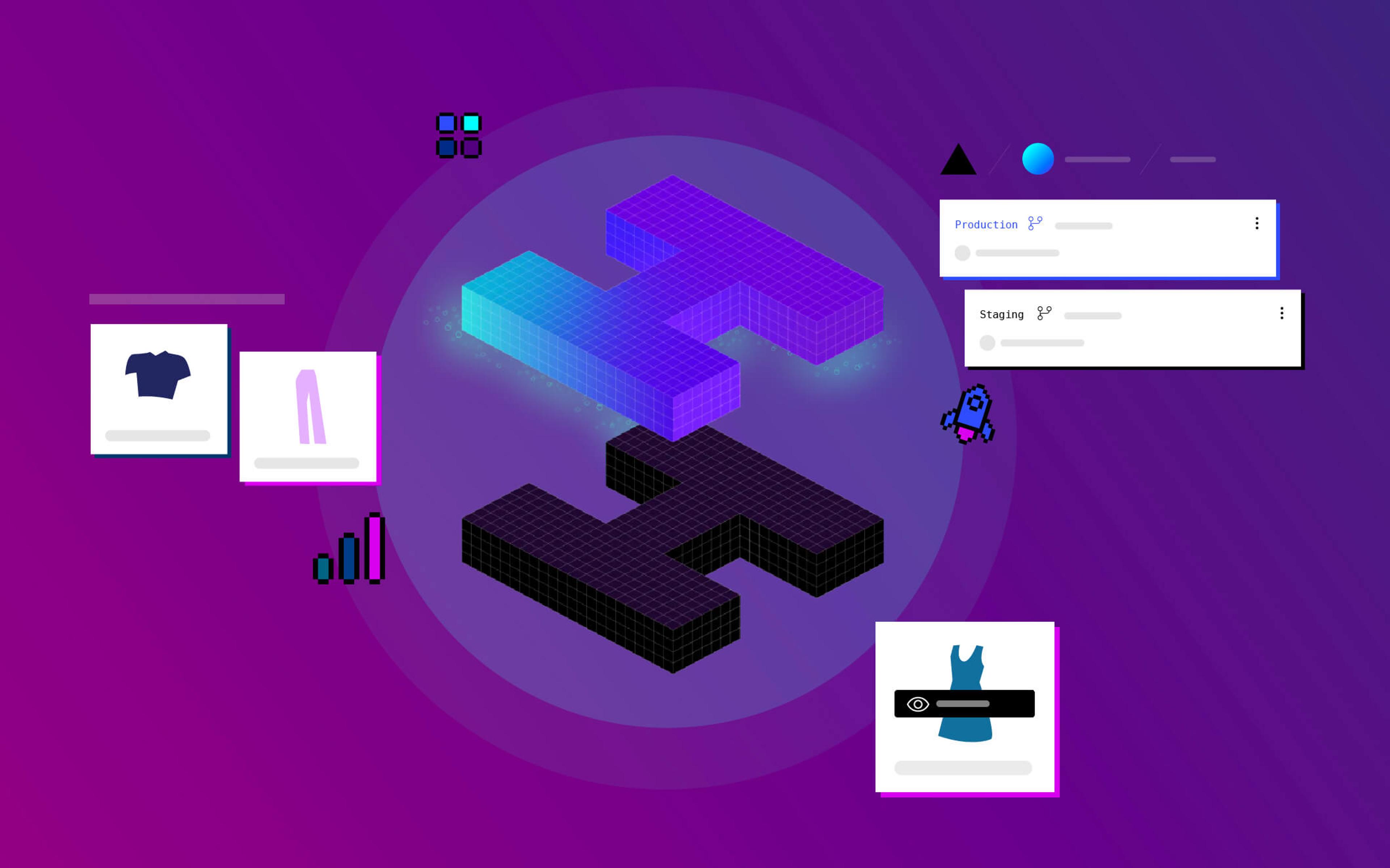With a myriad of B2B eCommerce platforms available on the market today, choosing the best one to use to build your digital store can feel overwhelming.
From SaaS platforms to open-source platforms and open-source frameworks, you have countless options, no matter which functionality or specific technology you are looking for. However, to efficiently review your choices, it’s essential to understand your priorities.
In this guide, we will explore the best B2B eCommerce platforms, highlight their key features, and give you the criteria to use to pick the best one for your needs.
5 factors to consider when choosing a B2B eCommerce platform
To select the perfect solution for your eCommerce store, you need to identify your top priorities. The below five factors are crucial for ensuring both your team and your customers have a great experience with your platform.
Use these factors to compare your options and find the B2B eCommerce platform that fits your needs:
1. Pricing flexibility
In B2B marketing, you’ll work with diverse price points for your different customers. The best platforms have flexible pricing settings for multiple customer groups.
2. B2B payment methods
Choose a B2B eCommerce platform that supports B2B-specific payment methods. These options include payment by invoice, paper checks, ACH transfers, wire transfers, credit cards, and cash.
3. Pleasant UI
No matter how brilliant the B2B features of your commerce platform are, if the user interface is clunky and hard to navigate, it’s not a viable option. Go for platforms with an intuitive, user-friendly experience for customers, admins, and developers.
4. Robust scalability
You need an eCommerce solution that can grow with you when your B2B sales accelerate. You don’t want to incur costs for re-platforming when your business skyrockets.
5. Open source vs. SaaS
Because an open-source platform gives you full access to the source code, it’s fully customizable and scalable. However, it also comes with a steeper learning curve.
If your biggest concern is support and getting started quickly, then proprietary SaaS software is most likely a better option. SaaS platforms are hosted and run by service providers that charge a recurring fee for using their product.
Review of 5 top eCommerce platforms
Let’s use the above criteria to examine the five top B2B eCommerce platforms:
1. Shopify Plus
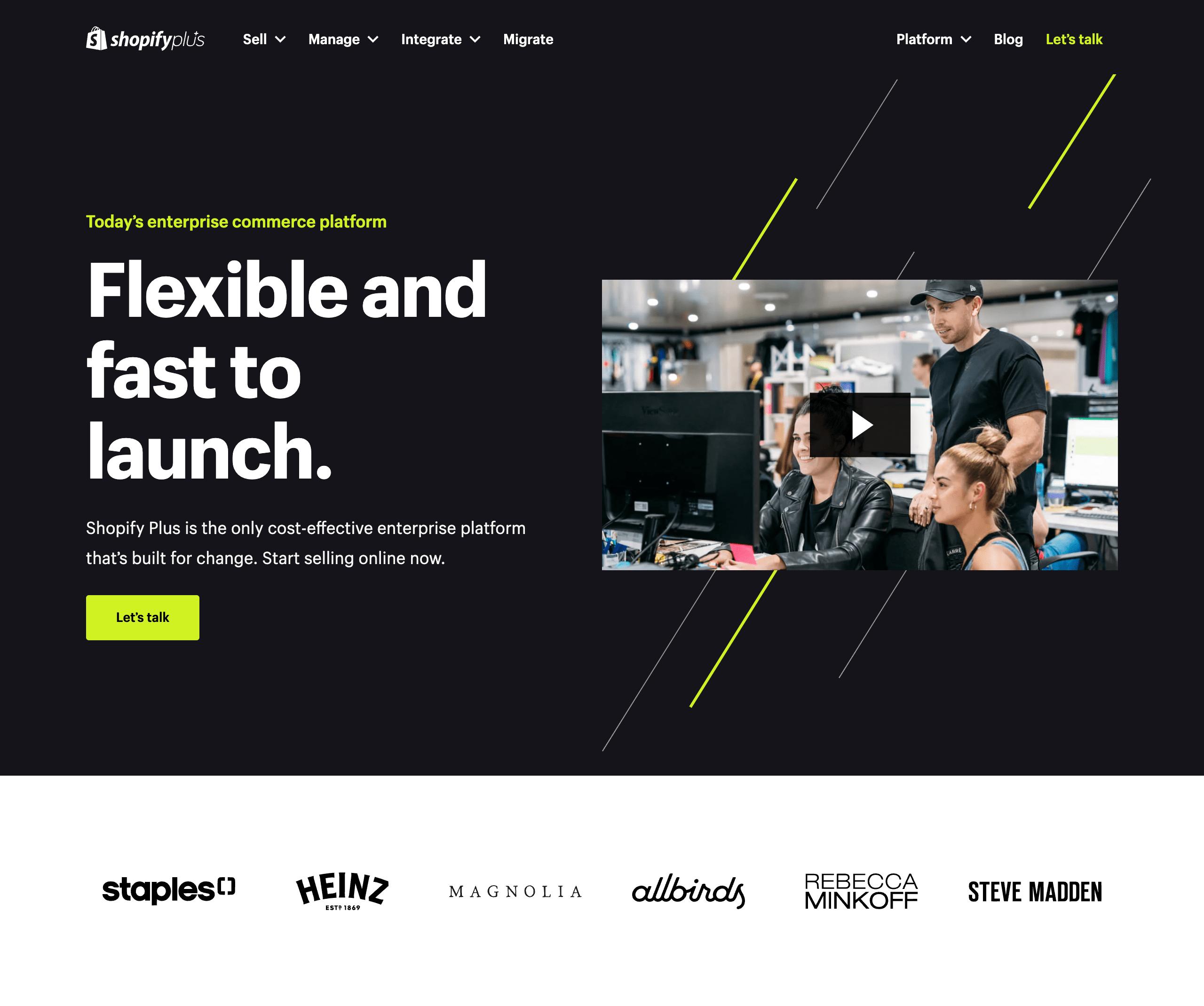
Shopify Plus is a market-leading eCommerce platform for enterprise B2C and B2B companies. Shopify powers 10,000+ global brands in 175 countries and can easily facilitate thousands of checkouts per minute. It gives high-volume brands a suite of powerful sales and marketing tools to scale, sell across multiple channels, and enter new markets.
Features:
-
Personalization: Tailor your business to your customers with personalized storefronts, custom settings for different countries, and custom pricing for 133 currencies.
-
Headless architecture: Enjoy the innovation and flexibility of a headless architecture that adapts to any device or channel, be it a website, wearable, or mobile app.
-
Ease of use: Shopify takes care of all the backend and frontend intricacies of running an online store, so you can launch quickly and enjoy solid security and great support.
-
Large ecosystem: Shopify is arguably the largest player in the eCommerce space, which means it has a vast ecosystem of out-of-the-box integrations and service providers.
-
Pricing: Starts at $2,000 per month with a variable fee for higher volume sales.
-
Best for: Fast-growing brands that net ~$1 million in revenue.
2. BigCommerce
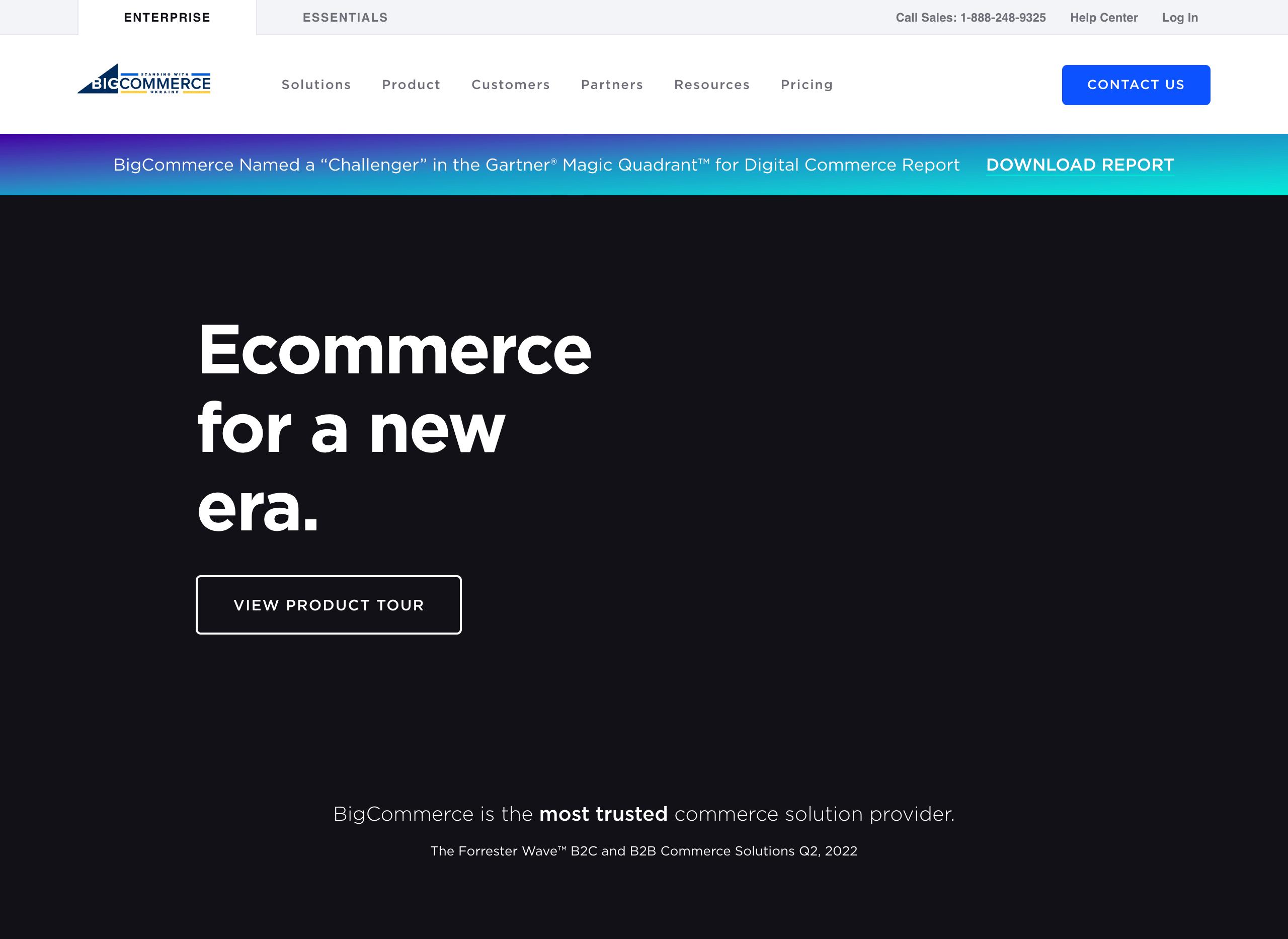
BigCommerce is a renowned B2C and B2B eCommerce platform that boasts endorsements from market research companies like Forrester, Gartner, and IDC.
It’s a SaaS solution that empowers B2B businesses to take charge of their digital storefronts through API-driven flexibility. BigCommerce’s dual approach allows them to serve both B2B and B2C brands.
Features:
-
Multi-storefront: Design unique storefronts for different regions and customer segments via pre-integrated apps and flexible, open architecture design.
-
Wholesale B2B eCommerce: Offer wholesale B2B customers individualized user experiences, price lists, and a shopping cart with multiple payment options.
-
Omnichannel capabilities: Use Codisto and Feedonomics to market your products through 150+ channels spanning social media platforms, search engines, and digital marketplaces.
-
API flexibility: Adapt to changing customer needs and business growth requirements by using the platform’s powerful APIs to connect your CRM, ERP, PIM, and other software to accommodate new customers, product catalogs, and workflows.
-
Pricing: Starts at $29.95 for the “Essentials” plan and custom pricing for the “Enterprise” plan.
-
Best for: Small eCommerce businesses and large-scale merchants.
3. Swell
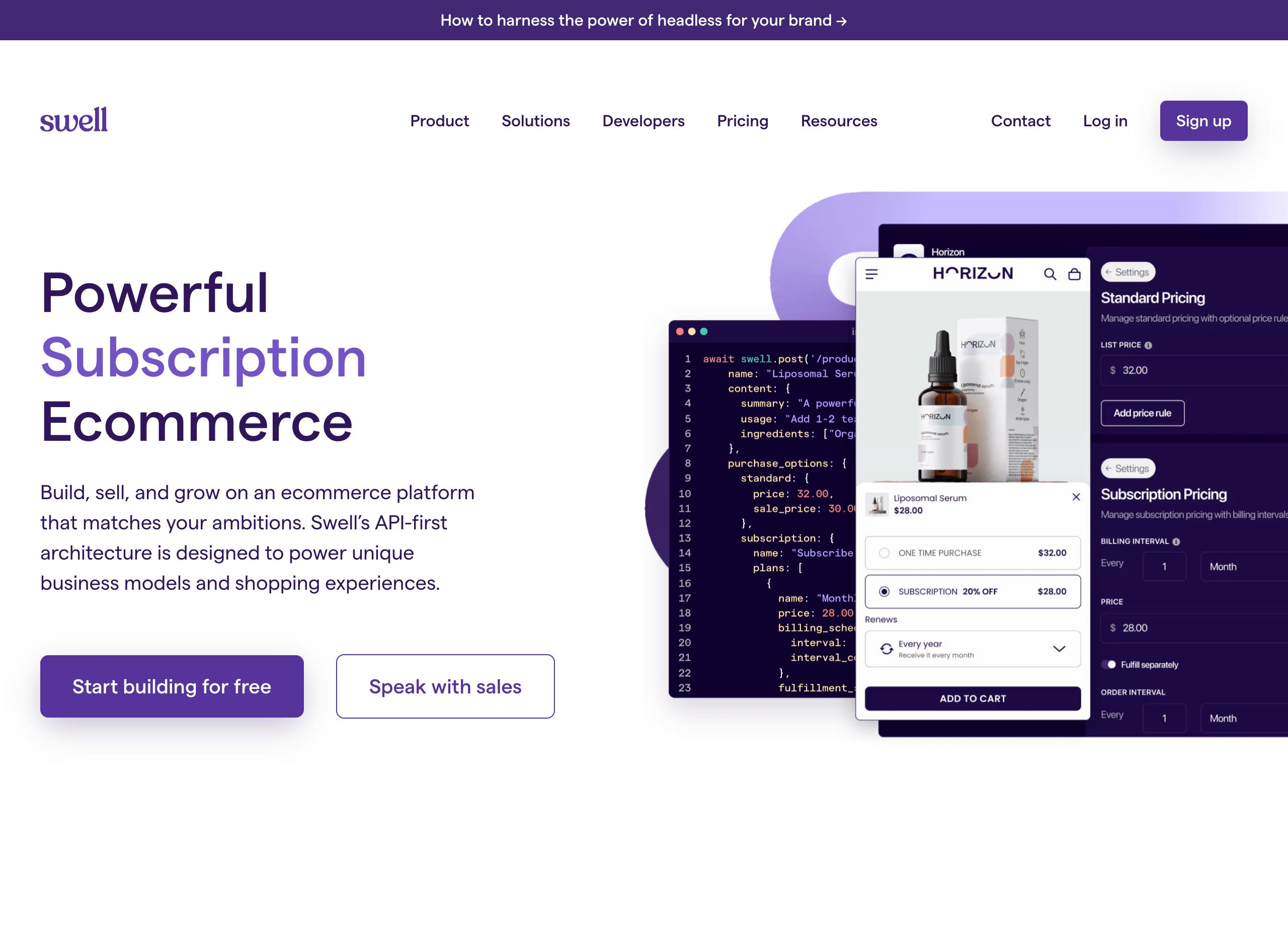
Next up in our B2B eCommerce solution rolodex is Swell, a headless eCommerce platform that provides B2B-specific functionality to cover a wide range of use cases.
With its open and extensible API, Swell is a good middle ground between the flexibility of open-source platforms and the convenience of SaaS platforms. It’s a good option if your brand has complex needs that require custom development, and you’re not afraid to get your hands dirty by coding your own storefront.
Features:
-
Flexible pricing: Swell has a powerful pricing system that allows you to specify customer groups, volume-based discounts, and personalized promotions, all of which are table stakes for B2B brands.
-
Highly customizable: Swell allows you to extend the core data models with your own attributes and concepts, enabling your dev team to customize your eCommerce experience in ways that wouldn’t be possible with the competition.
-
B2B-friendly payments: With support for invoicing, multipart, and offline payments, Swell provides all the features you need to support payments for your B2B business.
-
Headless storefront: Swell is a fully headless B2B platform, which gives you full control over your storefront experience. This allows you to freely and quickly iterate on the UX of your B2B shopping experience, with very few limitations.
-
Pricing: Community plan starts at 2% of sales.
-
Best for: Tech-savvy B2B brands with custom needs.
4. NetSuite SuiteCommerce
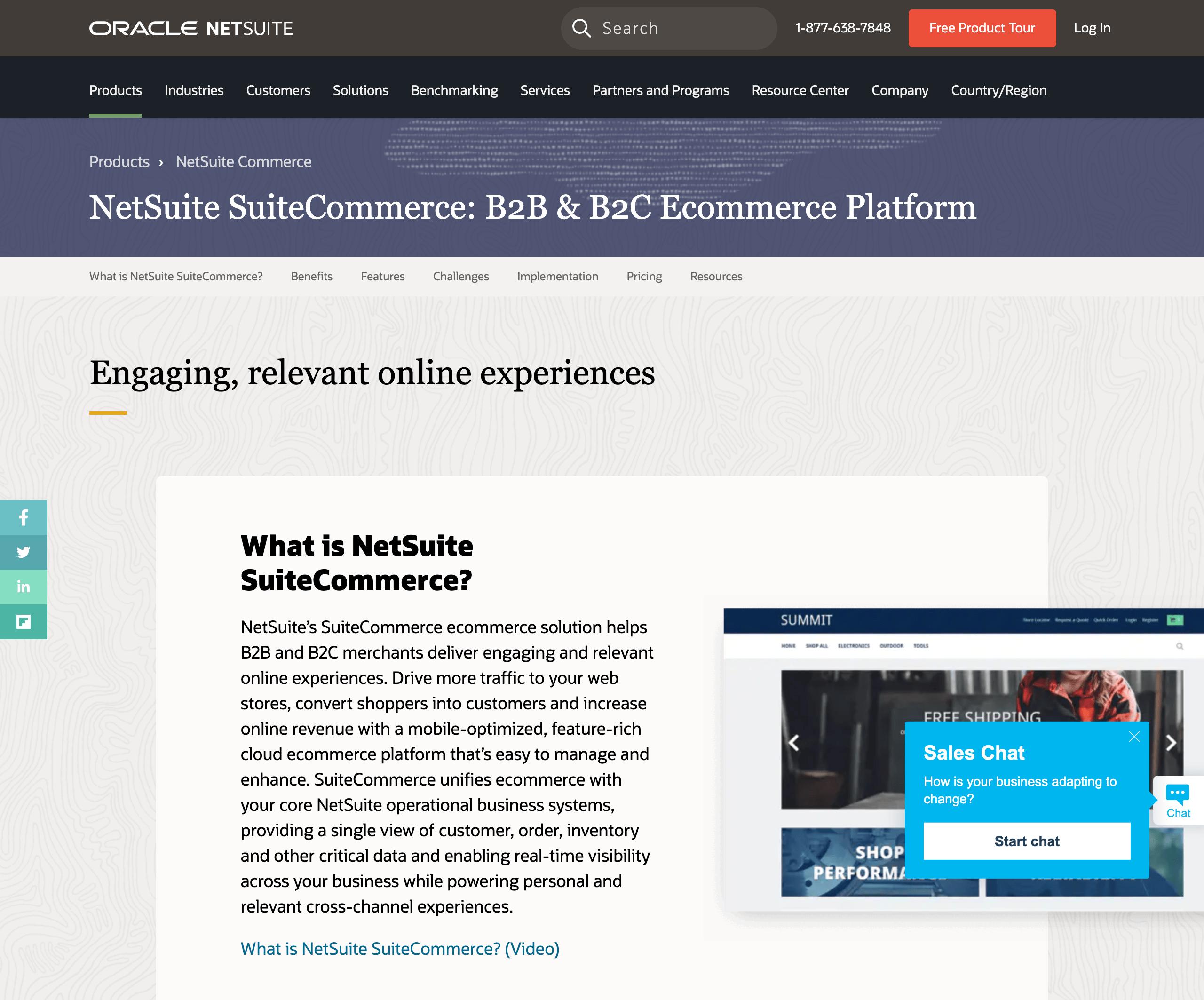
NetSuite SuiteCommerce is the cloud-based eCommerce solution by NetSuite, one of the leading providers of ERP software.
With NetSuite SuiteCommerce, you can manage all aspects of your business-to-business eCommerce brand, including quote management, reordering, invoicing, segment-based pricing and product catalogs.
Furthermore, NetSuite’s eCommerce solution natively integrates with NetSuite’s CRM, ERP and inventory management solutions, allowing you to manage large-scale eCommerce operations.
Features:
-
Scalability: With NetSuite’s integrated ecosystem, you will get access to a suite of tools that will help you run your B2B eCommerce business by following industry-proven workflows.
-
Powerful analytics: NetSuite SuiteCommerce offers powerful analytics capabilities, allowing you to build and save custom reports that help you drive your business forward.
-
Built-in CMS: NetSuite SuiteCommerce’s built-in, drag-and-drop CMS allows you to make changes to your eCommerce site without development work and even schedule them to be published at a later stage.
-
Self-service account management: The platform provides self-service account management capabilities: Customers will be able to manage returns themselves or contact your helpdesk if they need assistance with an order.
-
Pricing: $999 licensing fee and $99 per user
-
Best for: Mid- to large-size brands making the jump to enterprise.
5. Solidus
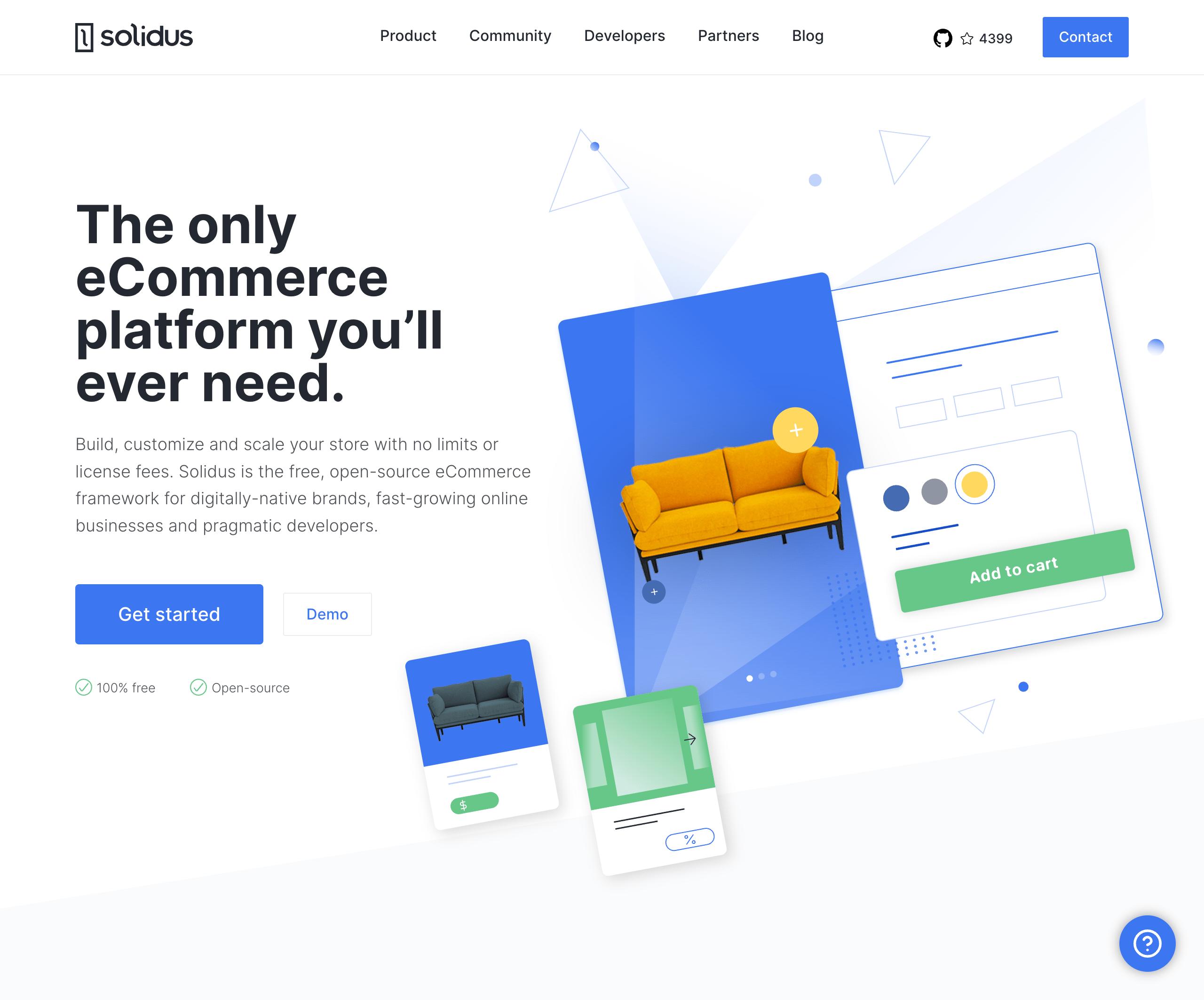
Solidus is an open-source eCommerce platform used by world-class B2C and B2B brands.
Based on the Ruby on Rails framework, Solidus offers eCommerce brands all the flexibility they need to build innovative customer experiences for their business-to-business brand, and provides a robust and scalable architecture that has stood the test of time.
Offering the ability to customize every single aspect of the storefront, admin panel and core business logic, Solidus is the perfect fit for B2B brands that want to offer engaging shopping experiences or need to integrate with an in-house/exotic PIM, ERP system, or other service.
Features:
-
Monolithic or headless: Solidus natively supports monolithic and headless architectural models. Start quickly with a monolithic build, then transition to headless as your brand grows and you need more flexibility on the frontend.
-
Completely customizable: Solidus offers native customization hooks for every single aspect of the customer and admin experience, as well as its internal business logic. You will be able to customize every bit of your eCommerce website however you like.
-
Scalability: This is a platform that has stood the test of time, and is used by some of the world’s largest B2B and B2C eCommerce brands.
-
Vibrant community: Solidus has a vibrant and active community of agencies, brands and contributors, all sharing their experience and know-how to help each other achieve their goals.
-
Pricing: Free.
-
Best for: Brands that want full control over their digital presence, to innovate and scale intentionally.
Discover the best B2B eCommerce platform for your brand
There you have it — a curated list of the best B2B eCommerce platforms available on the market today!
To find the right eCommerce solution, look for one that has:
-
The eCommerce features you want for your store(s).
-
The flexibility to meet your unique business model.
-
Good scalability to accommodate future growth and business needs.
Finding the right B2b eCommerce platform is one thing. Developing a seamless user experience that fits your brand is equally important. Nebulab can help you with everything from eCommerce migrations and storefront development to digital commerce strategy. No matter where you are in your brand’s journey, we have the right service for you.
Get in touch today to see how Nebulab can take your brand to the next level.

